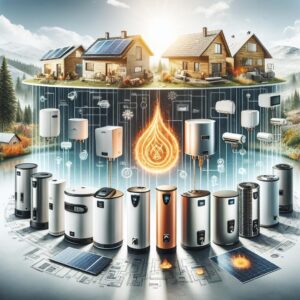Finding Your Perfect Heat: The Best Water Heaters for Every Home
When it comes to comfort in our homes, few things are as essential as having a reliable supply of hot water. Whether you’re washing dishes, enjoying a long shower, or doing laundry, the right water heater can make all the difference in your daily routine. But with so many options available—tumbling between tankless and traditional, electric and gas—it can feel a bit overwhelming to determine which is the best fit for your space and lifestyle. Fear not, dear reader! In this friendly guide, we’ll explore the best water heaters tailored to a variety of homes, budgets, and preferences. Let’s dive in and discover how to turn up the heat in a way that’s just right for you!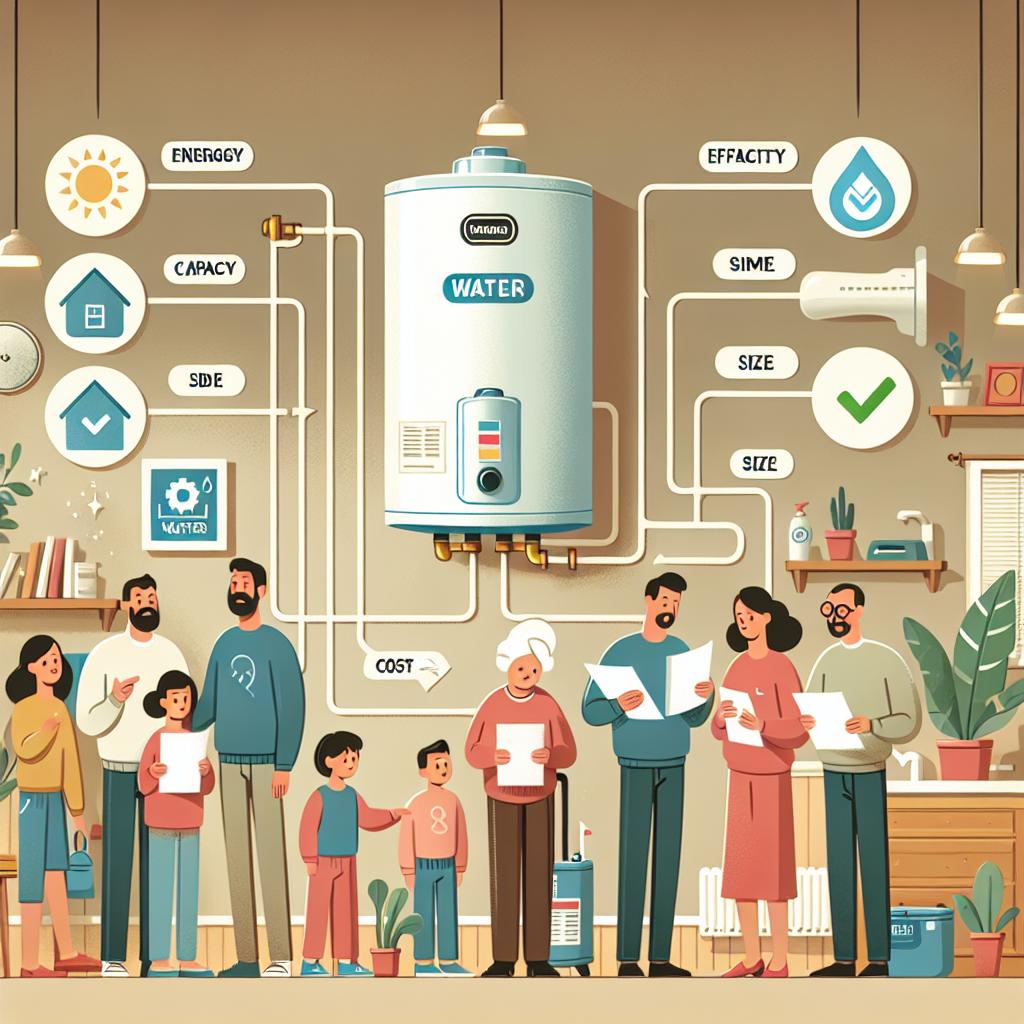
Choosing the Right Type of Water Heater for Your Familys Needs
When selecting a water heater, it’s essential to consider your family’s specific needs, as this decision can significantly affect both comfort and energy efficiency. Start by assessing the size of your household, your hot water consumption patterns, and the available space for installation. For larger families, traditional tank water heaters may be ideal, as they store a significant volume of hot water for immediate use. Conversely, if you’re a compact household or have space constraints, tankless water heaters might be more suitable, offering hot water on demand without the bulk of a traditional tank.
Another crucial factor is energy efficiency, which not only impacts the environment but also your monthly utility bills. Look for units with a high Energy Factor (EF) rating; this indicates how effectively the heater converts energy into hot water. Additionally, consider unconventional options such as solar water heaters or heat pump water heaters, which utilize renewable energy sources for an eco-friendly alternative. Below is a simple comparison of different types of water heaters to help you make an informed choice:
| Type | Efficiency | Cost Range | Ideal For |
|---|---|---|---|
| Traditional Tank | Moderate | $300 – $1,000 | Large families |
| Tankless | High | $500 – $1,500 | Small homes |
| Solar | Very High | $3,000 – $6,000 | Eco-conscious users |
| Heat Pump | High | $1,500 – $3,500 | Climate-friendly choices |
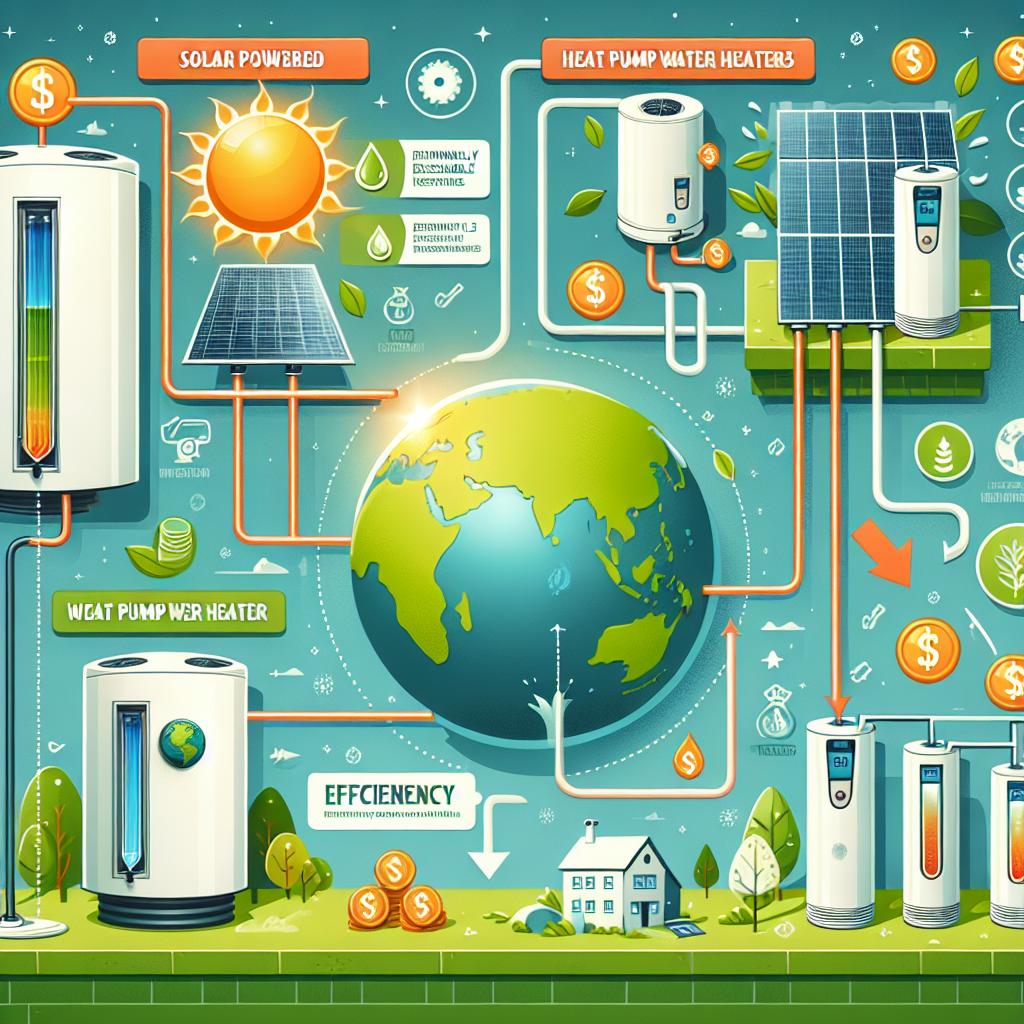
Eco-Friendly Water Heating Options That Save Money and the Planet
When it comes to heating water sustainably, homeowners have a plethora of choices that not only conserve energy but also cut costs. Solar water heaters leverage sunlight to heat water, providing a renewable solution that can significantly lower utility bills over time. With government incentives available in many areas, the initial investment often pays off quickly. Another option is the heat pump water heater, which utilizes ambient air to heat water, achieving an impressive efficiency rate that can reduce energy consumption by up to 60% compared to traditional electric heaters.
For those looking for a more immediate solution, tankless water heaters are a fantastic choice. These systems heat water on demand, eliminating the need for a bulky storage tank and the associated energy loss. Plus, they typically last longer than conventional heaters, further enhancing their eco-friendliness. Moreover, using biofuel water heaters—which burn renewable resources—can also provide a significant environmental benefit while being cost-effective in regions with readily available fuel sources. To help you navigate through these choices, here’s a quick comparison of these eco-friendly options:
| Water Heating Option | Energy Source | Estimated Efficiency | Upfront Cost |
|---|---|---|---|
| Solar Water Heater | Sunlight | 80-90% | $$$ |
| Heat Pump Water Heater | Electricity/Ambient Air | 300-600% | $$$ |
| Tankless Water Heater | Electricity/Natural Gas | 85-98% | $$ |
| Biofuel Water Heater | Renewable Fuels | 85-90% | $$ |
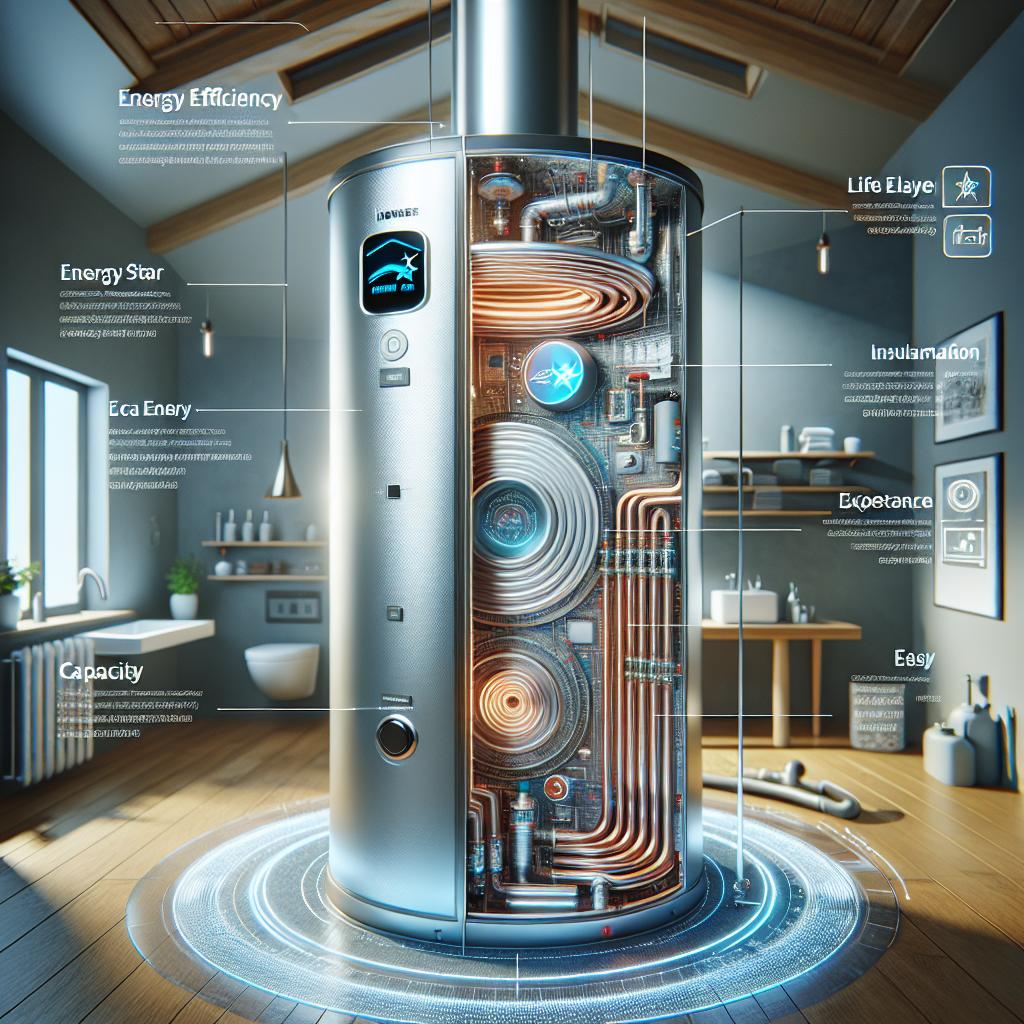
Maximizing Efficiency: Features to Look for in a Top-Quality Water Heater
When searching for a top-quality water heater, it’s vital to consider several features that can dramatically enhance your home’s efficiency. Energy efficiency ratings are crucial; look for units with a high Energy Factor (EF) or Uniform Energy Factor (UEF) to ensure reduced energy consumption. Additionally, consider tankless options that heat water on demand, eliminating standby heat loss associated with traditional tank heaters. Other features to prioritize include:
- Smart technology: Integration with home automation systems for schedule programming and usage monitoring.
- Precision temperature controls: To provide consistent hot water without overheating.
- Durable construction: Materials like stainless steel or polymer for resistance against rust and corrosion.
Another key element to consider is the size and capacity of the water heater. Depending on your household’s needs, choosing a model that aligns with peak usage times can prevent any cold-water surprises. Utilize the following table to understand the ideal capacities for different household sizes:
| Household Size | Recommended Capacity |
|---|---|
| 1-2 People | 20-30 gallons |
| 3-4 People | 30-50 gallons |
| 5+ People | 50+ gallons |
Lastly, don’t overlook warranty and service plans; a longer warranty typically reflects the manufacturer’s confidence in their product. It’s also worth checking customer reviews and expert recommendations to choose a water heater that not only meets your efficiency needs but also stands the test of time.
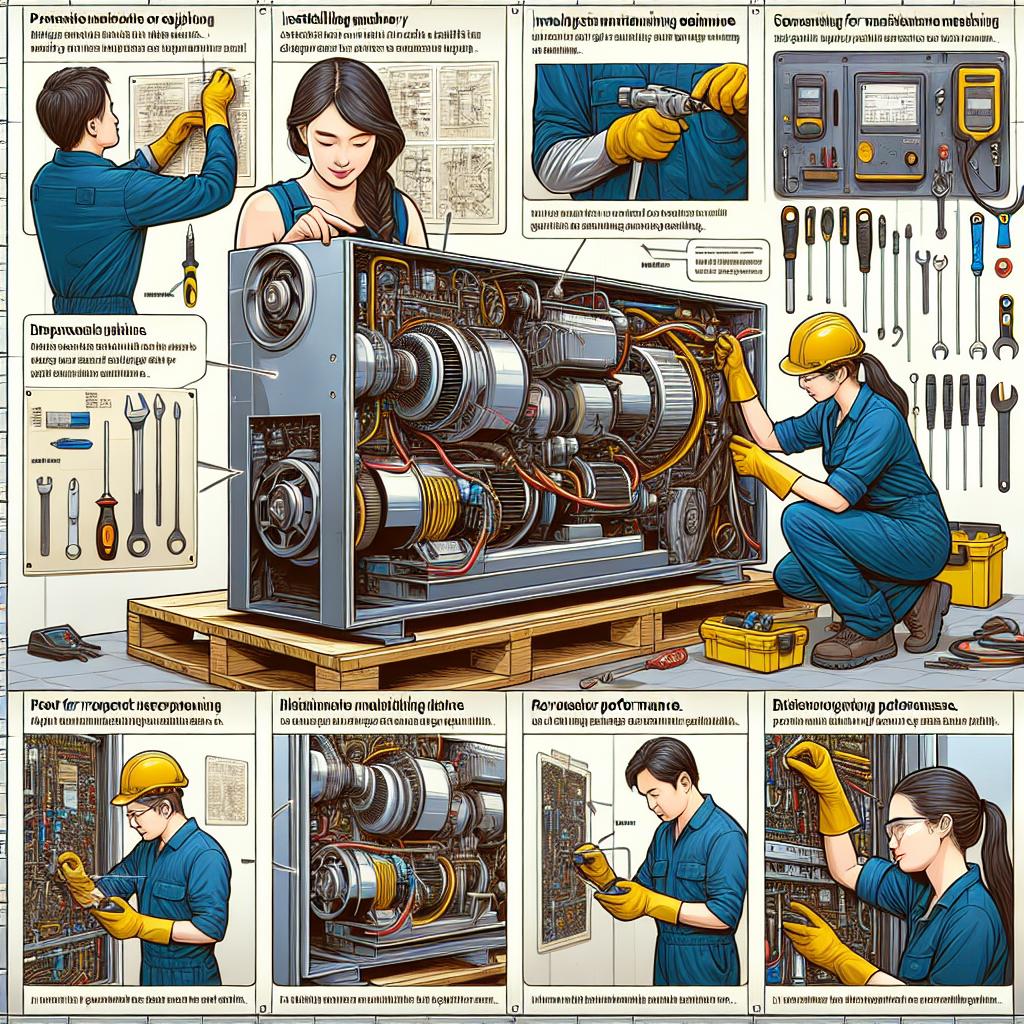
Installation Tips and Maintenance Tricks for Long-Lasting Performance
When installing your chosen water heater, it’s crucial to ensure proper setup for optimal performance. Begin by selecting a suitable location that is dry, well-ventilated, and close to water entry points. Here are some essential tips to keep in mind:
- Check Local Codes: Always comply with local building codes and permits before installation.
- Use a Professional: If unsure, consider hiring a licensed plumber for installation to avoid common pitfalls.
- Ensure Proper Venting: For gas water heaters, ensure proper venting to prevent harmful gas buildup.
- Insulation Matters: Insulate the hot water pipes to maintain water temperature and improve efficiency.
Regular maintenance is key to extending the lifespan of your water heater. Prioritize routine checks and a cleaning schedule to prevent sediment buildup and enhance efficiency. Here’s a quick maintenance checklist:
- Flush the Tank: Perform this annually to remove accumulated sediment, which can impact heating efficiency.
- Inspect the Anode Rod: Replace it every few years to protect against corrosion.
- Check Temperature Settings: Keep the thermostat set to 120°F for optimal performance and safety.
- Leaks and Corrosion: Regularly inspect for leaks or rust around the tank and pipes.
Q&A
Q&A: The Best Water Heaters for Every Home
Q1: What should I consider when choosing a water heater for my home?
A: Great question! The best water heater for your home depends on a few key factors: your household size, your water usage habits, fuel availability (gas, electric, solar), and the space you have. Also think about efficiency—an Energy Star-rated model can save you money on bills in the long run and help the planet!
Q2: What’s the difference between tankless and traditional tank water heaters?
A: Think of traditional tanks as the classic “on a first-name basis” style—always ready to serve you with a steady supply of hot water, but can take up quite a bit of space. Tankless water heaters, on the other hand, are the cool kids—they heat water on demand, which means you’ll never run out during an epic shower! However, they might require a bigger initial investment.
Q3: Are there water heaters that are both environmentally friendly and efficient?
A: Absolutely! If you’re looking to go green while staying cozy, solar water heaters are a fantastic option. They harness the sun’s energy, which can significantly reduce your carbon footprint. Heat pump water heaters are another eco-friendly choice, using electricity to move heat rather than generating it directly.
Q4: How do I know what size water heater I need?
A: Consider this: if your family loves long showers and running multiple appliances simultaneously, you might need more hot water capacity! For a household of 4, a 50-gallon tank is typically adequate. But remember, if you opt for tankless, consider your peak hour demand to make sure everyone stays cozy!
Q5: Any tips for maintaining my water heater?
A: Maintenance is key to a long and happy life for your water heater! Consider flushing the tank annually to remove sediment buildup, checking the anode rod (your heater’s protector against rust), and examining the thermostat settings. A little TLC goes a long way, and can help boost efficiency and longevity.
Q6: What are some top-rated water heaters that you recommend?
A: Sure thing! For tankless options, the Rinnai RUR199iN is highly praised for its efficiency and compact design. Benjamin Franklin’s Water Heater provides warm hugs for families everywhere with its 50-gallon Rheem Performance model. For a fantastic affordable solar option, the AET Solar Water Heater shines bright!
Q7: How do I know when it’s time to replace my water heater?
A: If your water’s looking murky, you’re hearing strange noises that sound like an underwater symphony, or you’re running out of hot water faster than before, it might be time for a replacement. Most water heaters last around 8-12 years, so if yours is entering its golden years, it’s wise to start shopping early!
Q8: Any final words of wisdom for choosing a water heater?
A: Absolutely! Do research—not all heroes wear capes, but some water heaters surely help save the day. Read reviews, compare warranties, and talk to professionals who can help you navigate your options. Remember, a warm home is a happy home!
—
So there you have it! Whether you’re in the market for a new water heater or just curious about the options available, we hope this guide has poured some warmth into your decision-making process!
In Summary
As we wrap up our journey through the world of water heaters, we hope you’re feeling a bit more empowered to make the best choice for your home. Whether you’re looking for a compact tankless model that will save space and energy, or a robust traditional tank that promises a steady supply of hot water for your family, there’s a perfect fit waiting for you.
Remember, investing in the right water heater isn’t just about comfort; it’s about efficiency, savings, and peace of mind. So go ahead, take the plunge! Your ideal water heater is just around the corner, ready to keep those showers steaming and the dishes sparkling. Thank you for joining us on this exploration, and here’s to warm waters and cozy homes! Happy heating!

